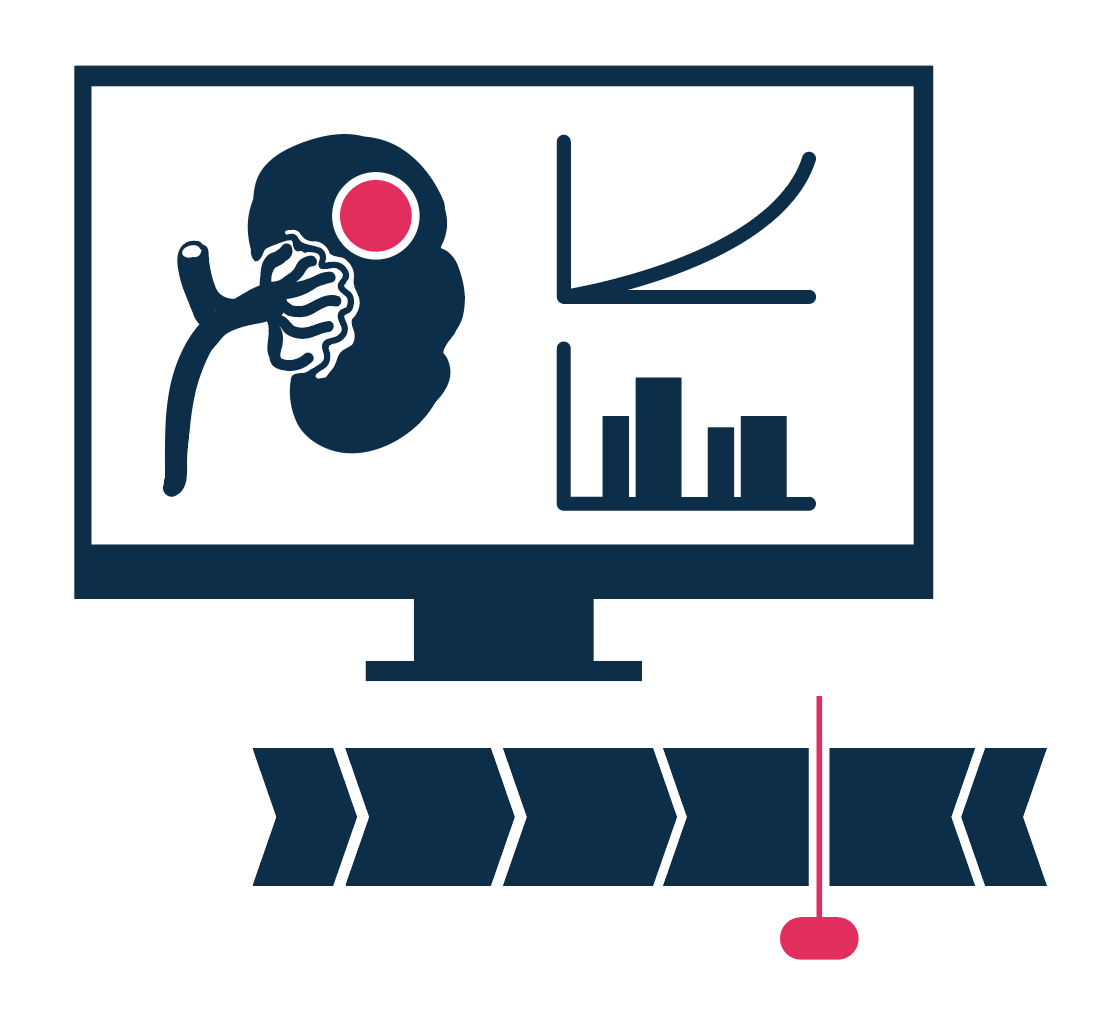Menu
Menu
Try UroPredict
Click HereThe goal of UroCCR, the French Kidney Cancer Research Network (Réseau Français de Recherche sur le Cancer du Rein), is to connect a National, multidisciplinary network of medical and scientific professionals who focus on therapeutic management and applied research into kidney cancer.
47
3
>120
All clinical, biological, and radiological data from newly diagnosed kidney cancer patients in the UroCCR network are collected in a National, multidisciplinary, clinical and biological database which is shared and used to power collaborative research projects. It is labelled by the French national Cancer Institute (INCa) and referenced by the High Authority of Health (HAS) as a valuable source of real-world data.

To develop a machine learning-based, contemporary, clinically relevant model for pre-operative prediction of renal cell carcinoma pT3a upstaging in patients undergoing nephrectomy for cT1/cT2a renal cell carcinoma.
To develop a machine learning-based, contemporary, clinically relevant model for prediction of disease-free survival in patients undergoing surgery for localized or locally advanced renal cell carcinoma.

Research is needed to develop and test such a model.
Machine learning algorithms were designed, trained, and tested to predict kidney cancer upstaging and recurrence after surgery. As some data points might be missing in clinical routine, the algorithms were developed to handle incomplete data.
SOPHiA GENETICS products are for Research Use Only and not for use in diagnostic procedures unless specified otherwise.
SOPHiA DDM™ Dx Hereditary Cancer Solution, SOPHiA DDM™ Dx RNAtarget Oncology Solution and SOPHiA DDM™ Dx Homologous Recombination Deficiency Solution are available as CE-IVD products for In Vitro Diagnostic Use in the European Economic Area (EEA), the United Kingdom and Switzerland. SOPHiA DDM™ Dx Myeloid Solution and SOPHiA DDM™ Dx Solid Tumor Solution are available as CE-IVD products for In Vitro Diagnostic Use in the EEA, the United Kingdom, Switzerland, and Israel. Information about products that may or may not be available in different countries and if applicable, may or may not have received approval or market clearance by a governmental regulatory body for different indications for use. Please contact us to obtain the appropriate product information for your country of residence.
All third-party trademarks listed by SOPHiA GENETICS remain the property of their respective owners. Unless specifically identified as such, SOPHiA GENETICS’ use of third-party trademarks does not indicate any relationship, sponsorship, or endorsement between SOPHiA GENETICS and the owners of these trademarks. Any references by SOPHiA GENETICS to third-party trademarks is to identify the corresponding third-party goods and/or services and shall be considered nominative fair use under the trademark law.